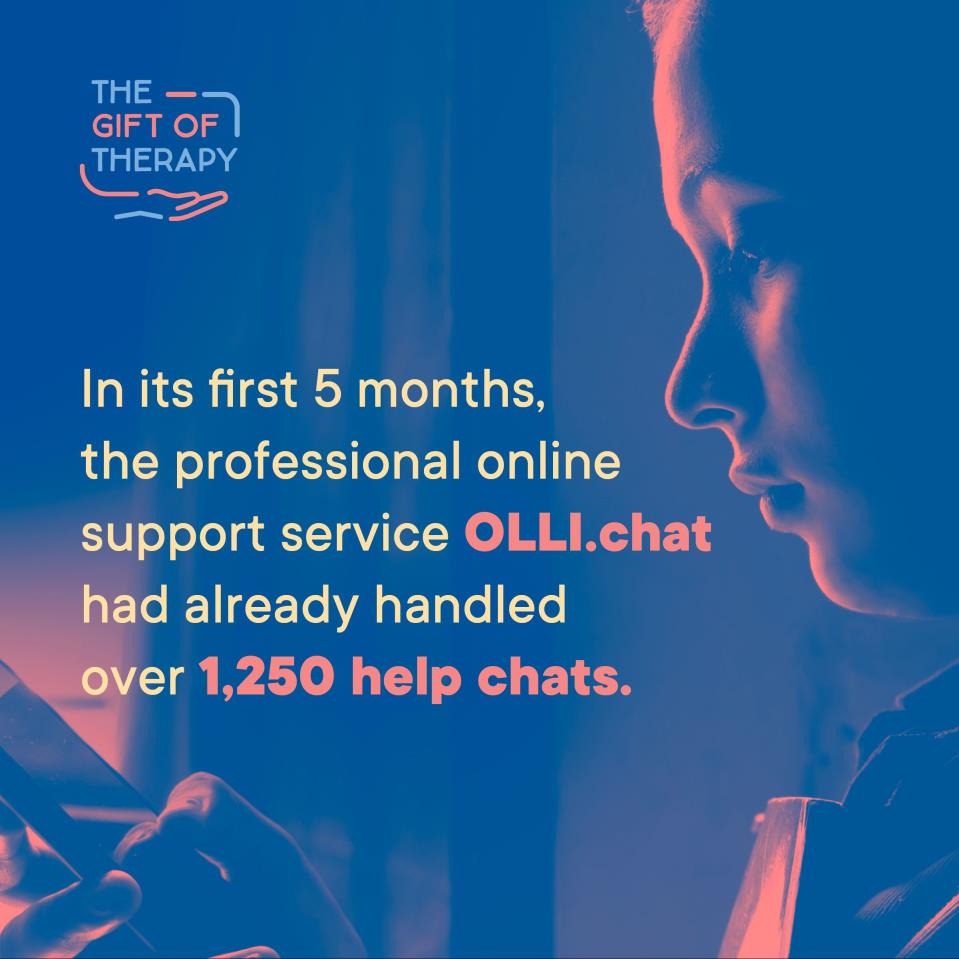Mental health support requests have continued to rise substantially since the start of the Covid-19 pandemic, statistics presented by the Richmond Foundation show.
In a press conference hosted by the Richmond Foundation's Chief Executive Officer Stephania Dimech Sant and its Chief Operations Officer Daniela Calleja Bitar, they showed how the pandemic has increased the need for mental health care and support.
"Mental health issues have always been an integral part of our lives. Some people are affected more than others. The World Health Organisation estimates that prior to Covid-19, 1 in 4 people were expected to have a mental health issue at some point in their lives. Covid-19 impacted mental health just like any other traumatic event. The difference is that the pandemic was not just a crisis which affected us at a point in time, or affected a particular group of people. It affected a vast number of people across the board," Dimech Sant said.
She detailed some of the many ways Covid has affected our lives - School closures, fear of being infected, online lessons, loss of income, cancellation of O and A levels, risk of losing business, no social activities, job loss, caring responsibilities, and so on. "We have had 628 days of all of this and more."
"During a crisis people try to adjust, adapt, make the best of it and get on with their lives. When an emergency is over, the full weight of what people were carrying hits them and the impact shows. The length of time Covid has been around makes it a long-term stressor," Dimech Sant added.

"When we started to approach some normality these past months, more people felt this aftereffect and started to experience the effects Covid had on their mental health. Some people will adjust, pick up pieces and move on with life with little or no help. Others will be more impacted," she said.
The Richmond Foundation has expanded its services and introduced new ones to help people who are struggling
"Even Covid has a silver lining," she said, explaining that more people who need mental health support are reaching out. "Requests for our services have increased drastically."
Daniela Calleja Bitar quantified this increase in demand.
"The increase in the demand for mental health services is being felt by the Richmond Foundation as well as by mental health services across board in Malta," Calleja Bitar said.
"If you take a ten year rolling average of the amount of requests we used to receive from the public pre-Covid, we were getting between 400-600 individual requests through our phone line. In 2020, the amount of requests went up to 4,500. This year, up to the end of October, we saw an increase to around 7000 contacts from the public requesting help regarding their mental health or the mental health of others (family members, friends, loved ones etc)."
Those are direct requests through the 1770 helpline, which is a 24/7 service the Richmond Foundation runs through a team of professionals in collaboration with Mental Health Services, she said.
The OLLI Chat service which was introduced by the foundation in May this year, is also seeing an incremental increase in terms of usage. "In terms of figures, every month we are seeing a 20% - 30% increase in terms of requests from people chatting to us and requiring help," Calleja Bitar added
The foundation also offers therapy services, and this has also seen an increase in users, she said.

"Therapy costs money and many cannot afford therapeutic interventions, so we meet them and see them for a brief while until we can find them free therapy or provide it ourselves, since we have a waiting list. We had a 73% increase in therapy demand across Richmond."
She said that the foundation will meet people fact-to-face or see them online, depending on the situation.
"If we cannot offer therapy at that point we have created a new emotional support service, to support you until you can be offered therapy with an actual therapist. We have doubled the amount of therapists we employ at the foundation," Calleja Bitar added.
The types of mental health issues faced changed over time. At the beginning of the pandemic, there was a lot of anxiety, fear of the unknown. Lately, there were more issues related to pandemic fatigue, they said.
Asked by The Malta Independent whether she foresees the number of people needing help to continue to rise or stabilize over the coming year, Calleja Bitar said it will likely be the former. "That is why we need to educate people about the symptoms of mental health and for them to seek help when symptoms start."

New campaign and financial situation
Stephania Dimech Sant said that finding the resources to deal with the demand is a completely different story. "Richmond has been doing as much as it can to meet the demand, but we are at a point where we need people's help."
It has launched a new campaign called the "Gift of Therapy campaign", which will utilise various forms of media. "We are also inviting commercial companies, as part of their Corporate-Social-Responsibility, to donate to the campaign and help us keep offering hope."
Richmond Foundation is calculating that it is around €200,000 short of what they need for their services for this year alone.
"Help us to continue giving hope to the people who reach out to us. www.richmond.org.mt/the-gift-of-therapy".